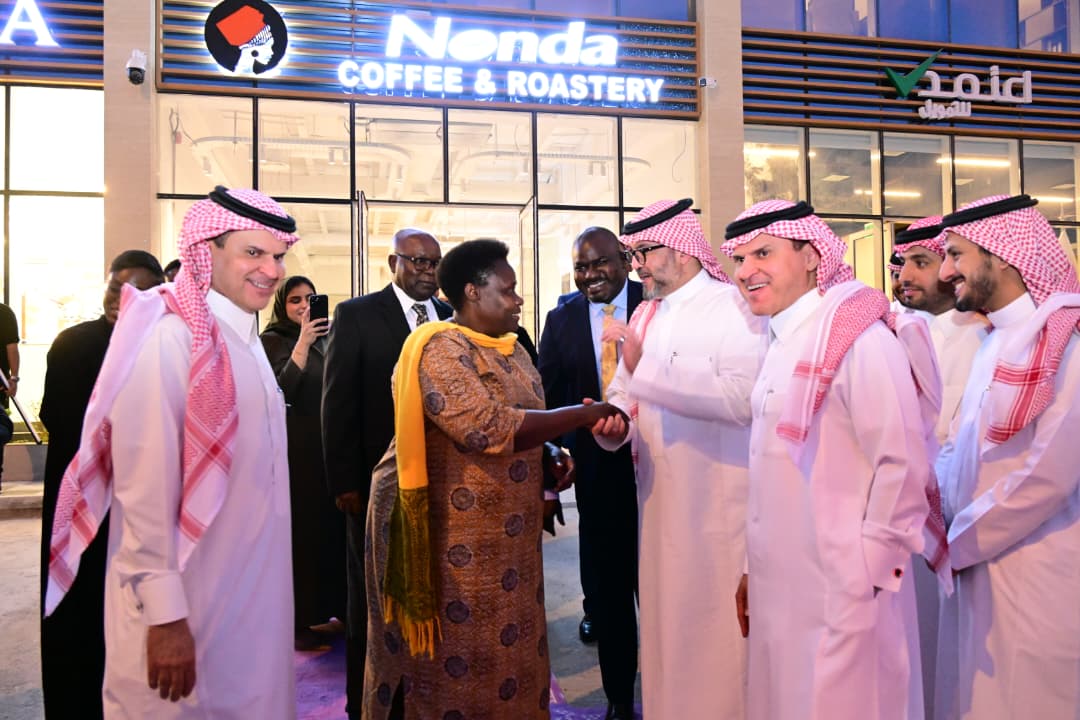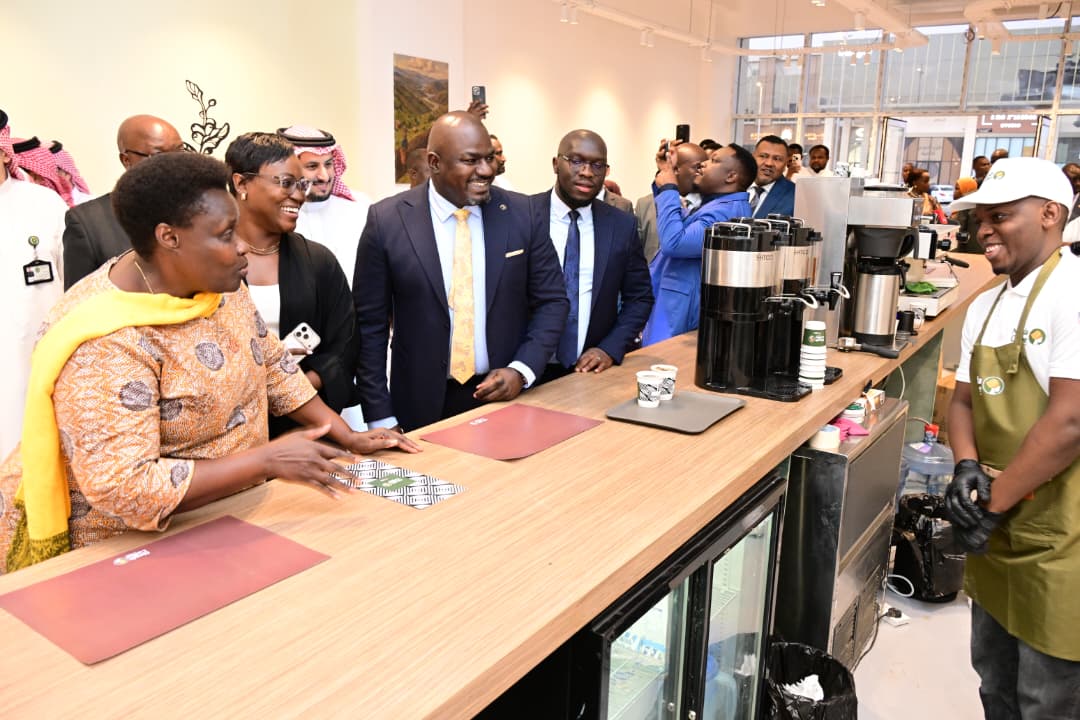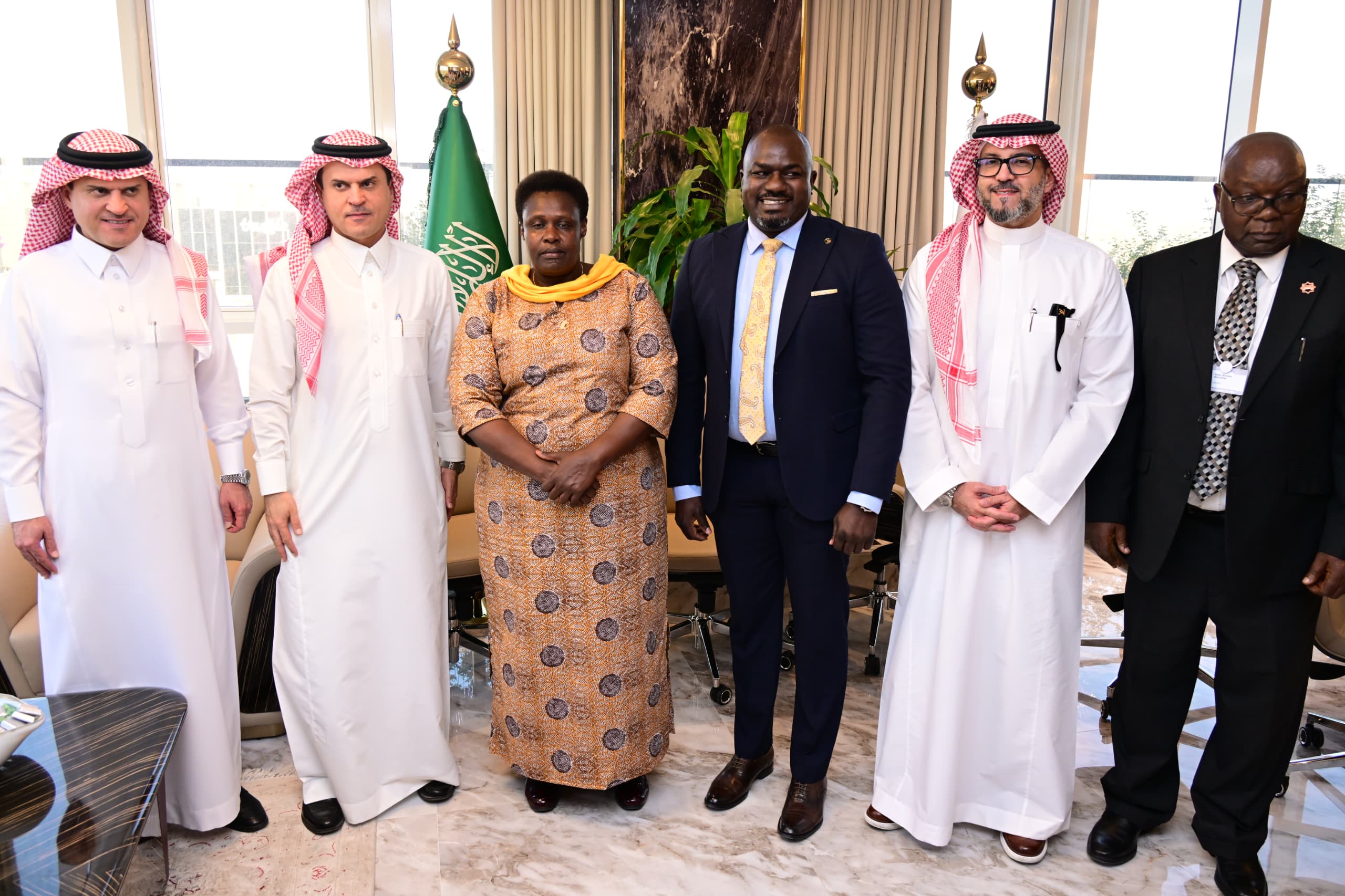Ugandan company opens first single-origin coffee café in Riyadh
The launch marks the inauguration of the Value-at-Source Coffee Project, a $148 million (about shillings 513 billion) bilateral initiative between Nonda Commodities and Saudi Arabia’s Ingaz International Holding Group, with backing from the Ugandan government.
Vice-President Jessica Alupo opens the Nonda Coffee Shop and Roastery in Riyadh, Saudi Arabia. (Courtesy photo)
____________________
A Ugandan company has opened the country’s first single-origin coffee café in the heart of Riyadh, deepening economic ties with Saudi Arabia.
The launch marks the inauguration of the Value-at-Source Coffee Project, a $148 million (about shillings 513 billion) bilateral initiative between Nonda Commodities and Saudi Arabia’s Ingaz International Holding Group, with backing from the Ugandan government.
The project aims to establish 50 outlets across the Kingdom, transforming Uganda from a raw bean exporter into a producer of premium, finished coffee products.
The launch marks the inauguration of the Value-at-Source Coffee Project, a $148 million (about shillings 513 billion) bilateral initiative between Nonda Commodities and Saudi Arabia’s Ingaz International Holding Group.(Courtesy photo)
Officiating on behalf of President Yoweri Museveni, Vice-President Jessica Alupo praised the venture as a cornerstone of commercial diplomacy.
“This initiative exemplifies Uganda’s shift from exporting green beans to delivering value, identity, and finished goods, aligning with Vision 2040 and our industrialisation goals,” she said.
Alupo said Nonda Coffee embodies shared prosperity, blending Ugandan enterprise with Saudi investment to foster trade, technology, and cultural exchange.
Saudi officials echoed Alupo’s sentiment, with Mohammed bin Abdulrazzaq Alohaly, the managing director of Agriculture and Food Processing at the Ministry of Investment, describing the project as a “model of productive South-South cooperation.”
He affirmed full kingdom support, noting its synergy with Saudi Vision 2030’s focus on economic diversification, sustainable agribusiness, and robust global value chains with African partners.
Additionally, he said, “Uganda’s coffee excellence will secure a lasting market in the Gulf and beyond.”
The initiative will operate under a dual-industrial framework. The Luwero Coffee Park in Uganda will undertake the processing, roasting, and packaging, paired with the Jazan Coffee Terminal in Saudi Arabia for distribution, certification, and re-export to GCC and international markets.
According to Alohaly, this end-to-end chain is designed to boost farmer incomes, elevate export revenues, and solidify Uganda’s standing in the $465 billion global coffee industry.

Vice-President Jessica Alupo opens the Nonda Coffee Shop and Roastery in Riyadh, Saudi Arabia. (Courtesy photo)
Tonny Miiro Kibuuka, CEO of Nonda Commodities Ltd, highlighted the venture’s broader impact and revealed that they are the first Ugandan firm to obtain both an Investment License and Commercial Registration in Saudi Arabia.
“We are building win-win partnerships that create dignified livelihoods across the value chain. Beyond premium coffee, we are driving rural jobs, industrial linkages, and inclusive growth to empower communities and position Uganda as a global coffee leader,” he said.
He noted that the Riyadh café symbolises the fusion of African heritage and Middle Eastern hospitality, serving speciality brews that trace directly to Ugandan farms.
Coffee trade highlights
The Café launch arrives amid surging Ugandan coffee exports. September 2025 saw 844,949 60-kilo bags shipped, valued at $218.6 million, a 56.1% quantity increase and 48.2% value rise year-over-year.
Asia, including emerging Gulf markets, now accounts for 14% of Uganda’s coffee imports, per the Ministry of Agriculture.

The launch marks the inauguration of the Value-at-Source Coffee Project, a $148 million (about shillings 513 billion) bilateral initiative between Nonda Commodities and Saudi Arabia’s Ingaz International Holding Group.(Courtesy photo)
For the 2024/2025 coffee year, exports reached 8.2 million bags worth $2.3 billion, up 29.6% in volume and 64.1% in value from the prior year.
Projections for October 2025 anticipate 850,000 bags, fueled by the ongoing harvest in central and eastern regions.
As the first of 50 planned outlets, Kibuuka said the Nonda Coffee café not only introduces Riyadh to Uganda’s finest roasts but also sets a precedent for value-added African exports, promising sustained prosperity for both nations.